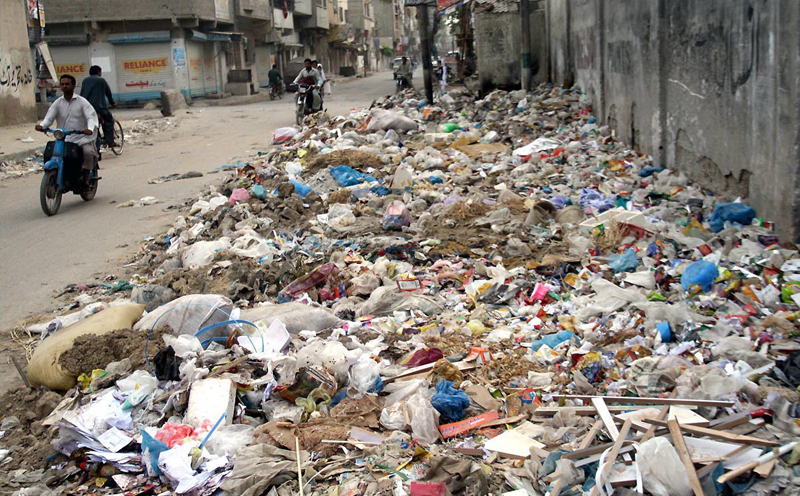Karachi, the largest city in Pakistan, is facing a massive challenge when it comes to garbage collection. The city generates an estimated 12,000 tons of solid waste per day, which is increasing day by day due to population-growth, rapid urbanisation and lack of waste-management infrastructure.
The garbage collection system in Karachi is severely flawed because over the years, the provincial government of Sindh has neglected this critical need of the metropolis. So, today, big heaps of garbage can be seen in many parts of the city, exposing the incompetence of the provincial and city-governments.
Despite allocating big budgets, the city is deprived of the resources and infrastructure needed to build an efficient and effective waste-management system. The city has inadequate waste collection vehicles, dumpsites, and landfill sites, which result in the accumulation of garbage on the streets and in public spaces.
One of the biggest challenges of garbage collection in Karachi is the informal waste sector, consisting of rag-pickers, who are not officially recognised by the government. These are mostly refugees, who collect most of the ‘sellable’ items from the garbage and sell it to the unregulated recycling industry.
They pick up Metal-pieces, wood, PET bottles, Tetra-packs, glass, etc. that make a significant proportion of the waste generated in the city. But, they do not have any training, or access to protective equipment, so their working conditions are very unsafe, exposing them to hazardous materials. The waste they collect is often not disposed of properly, leading to health and environmental hazards.
Lack of public-awareness about the importance of proper waste management is another big issue, because it directly impacts the hygiene and health of the citizens. Most people in Karachi do not segregate their waste, which makes it difficult for the waste management authorities to separate recyclable and non-recyclable waste. Public awareness campaigns should be launched to educate the citizens of Karachi on the subject. So the citizens can segregate their waste and dispose of it properly to ensure a cleaner and healthier environment.
To address these challenges, the government of Karachi needs to invest in waste management infrastructure, including waste collection vehicles, waste sorting compounds, recycling facilities and landfill sites. The government also needs to register the informal waste-collectors and provide them with training and protective equipment to ensure their safety and health.
In conclusion, garbage collection in Karachi is a significant challenge that requires urgent attention from the government and citizens alike. The resourceful corporate sector must also support the government in making Karachi clean, healthy and green for the future generations. Because, investing in the garbage-collection system will also reduce the burden on the health sector.
Kashif Arif
Karachi
Disclaimer: The Upcut does not, in any way, endorse the opinions expressed by writers on its platform. The views expressed by writers are their own.
